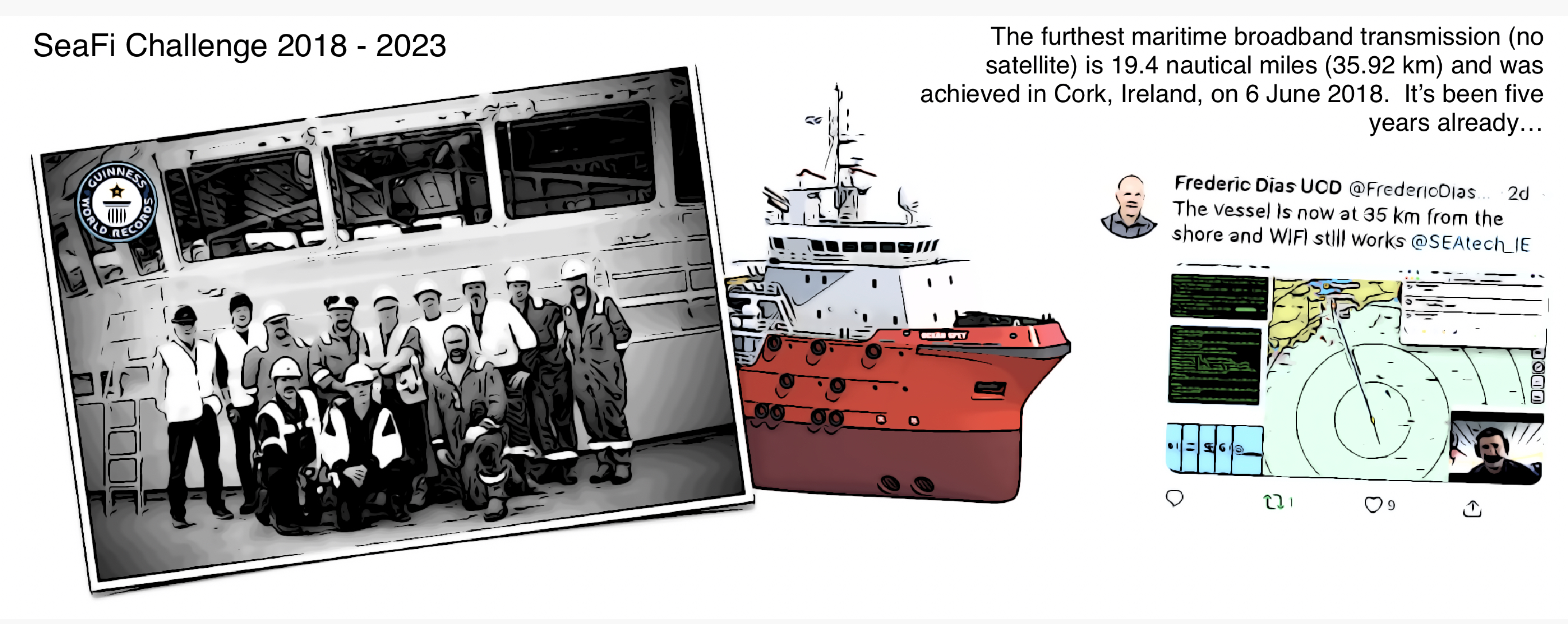
On 2 October 2019, Professor Frédéric Dias gave an official presentation of the ERC project HIGHWAVE. There was a variety of guests including the UCD VP for Research, Orla Feely, the head of the School of Mathematics and Statistics, Brendan Murphy, and representatives of the following institutions: Met Eireann, Commissioners of Irish Lights, Royal Irish Academy, Irish Air Corps, Marine Institute, ICHEC, The Office of Public Works. Several members of UCD College of Engineering and Architecture, as well as the Wave Group led by Professor Dias, also attended.

The presentation gave a brief overview of previous projects that looked at rogue waves and coastal boulder transport and led to the main objectives of HIGHWAVE. One of the main goals of the project is to elevate the current wave forecasting to the level of current weather forecasting. HIGHWAVE will be delivered in four work packages, each dealing with different aspects of breaking of highly energetic waves.
 HIGHWAVE guests at the UCD University Club
HIGHWAVE guests at the UCD University Club
The presentation was well received and the guests had a variety of good questions, from the reactions of the Aran Islands community, to data storage and maintenance. Later, as the project develops, there will be more public presentations to share the progress.
 Wave Group, School of Mathematics and Statistics (UCD)
Wave Group, School of Mathematics and Statistics (UCD)
